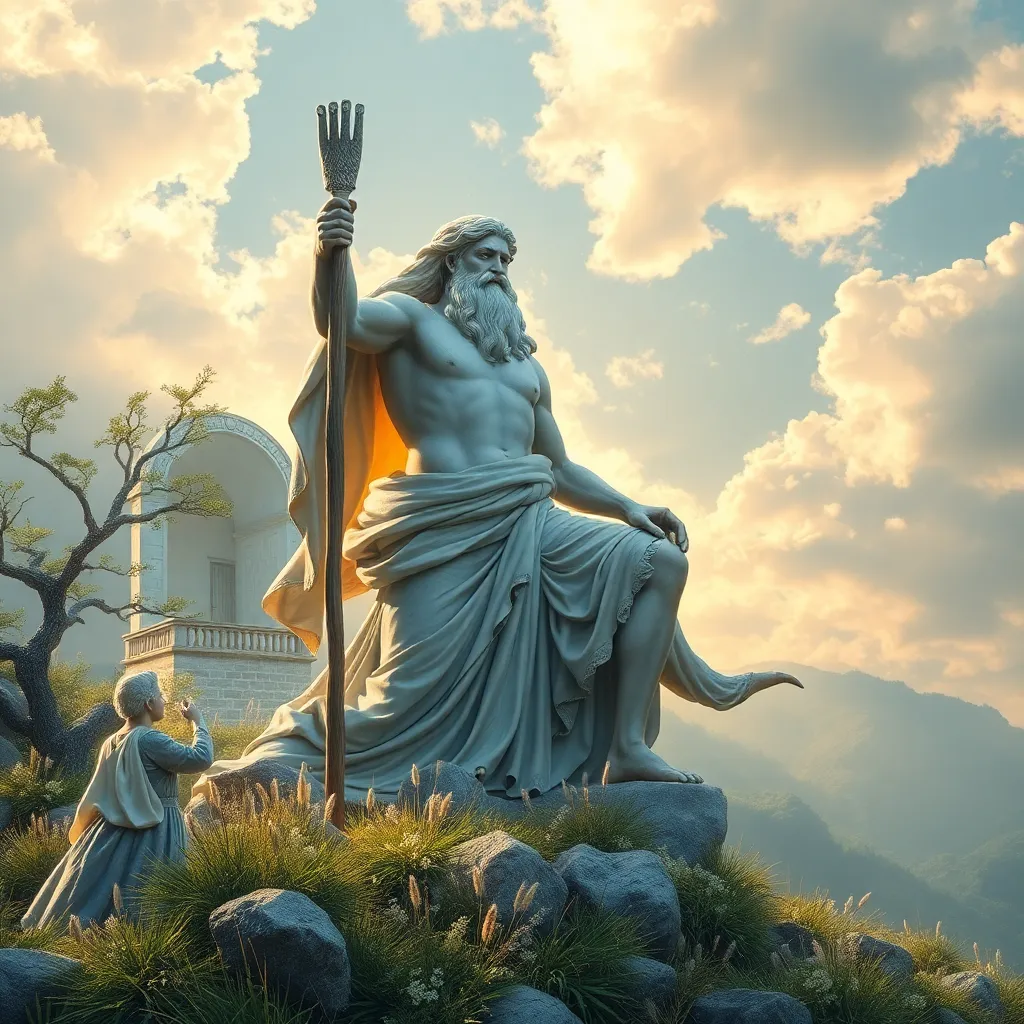The Myths of Zeus and the Seasons: A Connection to Nature
Introduction
In Greek mythology, Zeus stands as the supreme deity, wielding immense power and authority over gods and mortals alike. His presence permeates countless myths, reflecting the values and beliefs of ancient Greek culture. The concept of the seasons, integral to agricultural societies, is deeply intertwined with mythological narratives, showcasing how the ancients understood their environment.
The exploration of Zeus’s myths reveals a profound connection between divine narratives and the natural cycles of the world. Through the lens of mythology, we can understand how the ancients personified seasonal changes and integrated them into their spiritual and cultural fabric.
The Role of Zeus in Greek Mythology
Zeus, often depicted with a thunderbolt, is recognized as the king of the gods and the ruler of Mount Olympus. He is the son of Cronus and Rhea and the brother of prominent deities such as Poseidon and Hades. Zeus’s attributes include:
- Supreme authority: As the chief deity, he governs both divine and mortal realms.
- Protector of justice: Zeus is often seen as a figure of law and order, maintaining balance in the universe.
- God of the sky: He controls weather phenomena, which directly impacts agriculture and seasonal changes.
Zeus’s relationships with other gods and mortals are complex. He is known for his numerous love affairs, resulting in many offspring, both divine and heroic. These relationships illustrate his role in the natural order and human affairs, often reflecting themes of love, power, and consequence.
Mythological Narratives Explaining the Seasons
Several myths in Greek mythology elucidate the changing seasons, with one of the most significant being the story of Demeter and her daughter Persephone. This narrative serves as a poignant metaphor for the cycle of life, death, and rebirth.
According to the myth, Persephone was abducted by Hades, the god of the underworld. Demeter, her mother and the goddess of agriculture, mourned her absence, resulting in a barren earth and the onset of winter. When Persephone finally returned to the surface, Demeter’s joy brought about spring and summer, symbolizing renewal and growth.
This cycle of Persephone’s descent into the underworld and her return is emblematic of the seasonal changes, illustrating how life and death intertwine in nature. Zeus plays a crucial role in this narrative, as he ultimately orchestrates the reunion of mother and daughter, thereby restoring balance to the earth.
Symbolism of the Seasons in Relation to Zeus
In Greek mythology, each season carries distinct symbolic meanings that reflect both the natural world and the divine influence of Zeus:
- Spring: Represents rebirth, renewal, and fertility, paralleling Persephone’s return and Demeter’s joy.
- Summer: Symbolizes abundance and growth, a time when crops flourish under Zeus’s nurturing weather.
- Autumn: Reflects the harvest and the preparation for winter, a time for gratitude and reflection on the bounty provided by Zeus.
- Winter: Represents death and dormancy, mirroring Demeter’s sorrow during Persephone’s absence.
Through these seasonal representations, Zeus’s influence is evident, as he governs the natural elements that dictate the growth and decline of life on earth.
Nature Deities and Their Interactions with Zeus
Greek mythology is rich with nature deities who embody various aspects of the natural world. Notable figures include:
- Gaia: The personification of the Earth, representing fertility and the nurturing aspect of nature.
- Pan: The god of the wild, shepherds, and flocks, often associated with nature’s untamed elements.
These deities interact with Zeus, either supporting or challenging his authority. For instance, Gaia, as the primordial mother, represents the earth’s power, often in contrast to Zeus’s rule. Meanwhile, Pan’s connection to nature reflects the wild and unpredictable aspects of the world that even Zeus must contend with.
This interconnectedness illustrates how Greek mythology presents a complex web of relationships between divine figures and the natural world, emphasizing the balance that sustains life.
Cultural Practices and Festivals Linked to the Seasons
Ancient Greeks celebrated various festivals that honored Zeus and acknowledged the changing seasons. These festivals were often tied to agricultural cycles and marked significant transitions in nature. Some notable festivals include:
- Olympia: A festival held in honor of Zeus, featuring the Olympic Games, celebrated during the summer months.
- Thesmophoria: A festival dedicated to Demeter and Persephone, marking the planting season and honoring fertility.
- Anthesteria: A festival celebrating the new wine and the arrival of spring, linked to the renewal of life.
These celebrations fostered community bonds and reflected the deep connection between mythology, agriculture, and the cycles of nature, reinforcing the importance of gratitude and reverence toward the gods.
Lessons from Mythology: Nature’s Cycles and Human Life
The myths of Zeus offer profound lessons about humanity’s relationship with nature. They encourage respect for natural cycles and highlight the importance of balance in life. The story of Demeter and Persephone serves as a reminder of the inevitability of change, illustrating how loss and renewal are integral to existence.
Moreover, these ancient narratives resonate in contemporary discussions about environmental stewardship and sustainability. As we face modern ecological challenges, the wisdom embedded in these myths can inspire us to honor and protect the natural world.
Conclusion
The myths of Zeus and the seasons reveal a rich tapestry of connections between divine narratives and the natural world. Through the exploration of these stories, we gain insights into the ancient Greeks’ understanding of life, death, and the cyclical nature of existence.
As we reflect on these enduring tales, let us appreciate the wisdom they offer in fostering a respectful relationship with nature. The legacy of Zeus and the seasonal myths continues to inspire us to recognize the beauty and balance of the world around us.




